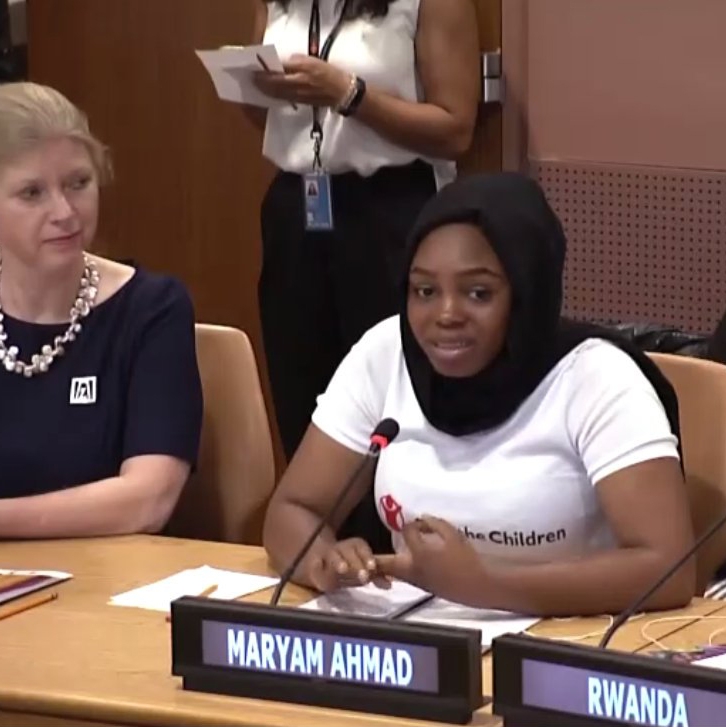Children’s health is a crucial aspect of their human rights. It encompasses all aspects of physical, mental, and social well-being.
Ensuring children’s health and human rights requires providing access to proper nutrition, healthcare, education, and a safe environment. It also involves protecting them from abuse, exploitation, and discrimination. Children’s health and human rights are interconnected, and their well-being is essential for the future of society.
It is the responsibility of parents, caregivers, communities, and governments to prioritize and protect the health and rights of children to ensure their holistic development and a better future.
Addressing Barriers To Pediatric Healthcare
Addressing barriers to pediatric healthcare is crucial in ensuring children’s health and upholding human rights. Financial constraints, geographical limitations, and lack of healthcare resources are major obstacles that hinder access to pediatric healthcare.
Many families struggle to afford essential medical care for their children due to financial hardships. Geographical limitations pose challenges for families residing in remote or underserved areas, making it difficult to access healthcare facilities. Additionally, the lack of healthcare resources in certain regions further exacerbates the disparities in pediatric healthcare.
By addressing these barriers, we can work towards ensuring that all children have equitable access to the healthcare they need.
Promoting Early Disease Prevention
Promoting early disease prevention in children is essential for safeguarding their health and human rights. Through immunization campaigns, children can be protected from preventable diseases, ensuring a healthier future. Additionally, nutritional education plays a critical role in instilling healthy eating habits and preventing nutritional deficiencies.
Encouraging a healthy lifestyle through regular physical activity and adequate sleep further contributes to overall well-being.
Advocating For Children’s Rights
Every child has the right to healthcare, ensuring their physical and mental well-being. Access to proper healthcare services and treatments is crucial in promoting a healthy childhood. It is our responsibility to advocate for children’s right to a safe environment. Creating a safe and nurturing atmosphere protects children from harm and allows them to grow and develop to their full potential.
Additionally, every child has the right to education and information. Education plays a pivotal role in shaping a child’s future and providing them with opportunities. By advocating for quality education and access to accurate information, we empower children to become informed individuals and active citizens in society.
Furthermore, it is essential to recognize and respect children’s voices and opinions. Children have the right to participate in decision-making processes that affect their lives. By involving children in discussions and considering their perspectives, we create a more inclusive and democratic society.
Advocating for these children’s rights is crucial in ensuring the holistic development and well-being of our future generations.
Engaging Children In Healthcare Decision-making
Engaging children in healthcare decision-making is essential to promote their overall well-being. By encouraging active participation, we empower children to have a voice in their healthcare journey. This can be achieved through open communication and involving children in discussions related to their treatment options. Promoting shared decision-making allows children to collaborate with healthcare providers and make informed choices that align with their preferences and values.
Educating children about their health rights is equally important. By teaching them about their rights, such as the right to privacy, informed consent, and access to appropriate healthcare, we empower children to advocate for themselves. This education can be provided through age-appropriate materials, interactive workshops, or even through school curricula.
Overall, engaging children in healthcare decision-making and educating them about their health rights create a foundation for a society that values children’s health and human rights.
Promoting Healthier School Environments
Promoting healthier school environments is crucial for children’s health and well-being. Encouraging nutritious meals is an important step towards ensuring children have access to proper nutrition. School meals should be well-balanced and include a variety of fruits, vegetables, whole grains, and lean proteins.
Implementing physical activity programs is another way to promote children’s health. Schools can offer a range of activities such as recess, PE classes, and after-school sports to keep children active. Additionally, addressing mental health needs is essential for overall well-being.
Schools should have resources and support systems in place to help children cope with stress, anxiety, and other mental health challenges. By focusing on these aspects, we can create a nurturing school environment that prioritizes children’s health and respects their human rights.

Credit: www.savethechildren.org
Supporting Communities For Better Health Outcomes
Enhancing access to recreational facilities: By providing children with safe and accessible recreational facilities, we promote physical activity and overall well-being. This includes the development of parks, playgrounds, and sports fields where children can engage in various activities and sports.
Building community gardens: Community gardens play a vital role in promoting healthy eating habits among children. By involving them in the process of growing fruits and vegetables, we encourage a nutritious diet and foster a connection with nature.
Collaborating with local organizations: Working hand in hand with local organizations such as schools, clinics, and community centers, we create a holistic approach towards children’s health. Through partnerships, we can provide comprehensive healthcare services, educational programs, and support systems for children and their families.
Educating Parents And Caregivers
Educating parents and caregivers on children’s health is crucial for promoting a healthy and safe environment for children. Providing information on children’s health issues equips parents with the knowledge to recognize symptoms, seek timely medical attention, and prevent common childhood illnesses.
Additionally, encouraging parent involvement in advocacy empowers them to voice concerns and work towards improving healthcare policies and services for children. By promoting parental education and involvement, we can create a society that prioritizes and safeguards the health and rights of children.
Collaborating With Healthcare Professionals
Establishing partnerships: It is essential to establish partnerships with healthcare professionals to promote children’s health and human rights. Collaborating with doctors, nurses, and other medical practitioners helps in providing holistic care and support for children.
Leveraging medical expertise: Healthcare professionals possess valuable expertise that can be utilized to address various health concerns affecting children. By collaborating with them, we can tap into their knowledge and experience to create effective health interventions.
Advocating for policy changes: Working with healthcare professionals also allows for advocating for policy changes that can positively impact children’s health and well-being. By forming alliances and leveraging the expertise of healthcare professionals, it becomes possible to drive meaningful change and create a healthier future for children.
Influencing Public Health Policies
Lobbying for improved healthcare policies is an essential aspect of influencing public health. By working with legislators, advocates can effectively promote policies that prioritize children’s health and human rights. This involves engaging in dialogue and collaboration with policymakers, presenting well-researched evidence and data to support proposed changes.
Another important strategy is participating in public consultations, where individuals and organizations have the opportunity to contribute to the policymaking process. By actively participating, stakeholders can voice their concerns and suggestions, ensuring that the needs and rights of children are considered.
Through lobbying and engagement in public consultations, advocates can shape public health policies that address the unique challenges faced by children. This includes advocating for accessible healthcare services, comprehensive immunization programs, and policies that promote overall well-being.
Monitoring Health Policies And Services
Evaluating policy effectiveness is a crucial step in monitoring the health policies and services provided to children. It involves assessing the impact of these policies to ensure that they are actually improving children’s health and fulfilling their human rights. Through this evaluation process, gaps and areas for improvement can be identified and addressed.
This evaluation helps in ensuring accountability of governments and stakeholders responsible for implementing these policies. By measuring the outcomes and effectiveness of health policies and services, it becomes easier to identify shortcomings and make the necessary improvements. It also helps in identifying the successes and best practices that can be replicated or scaled up.
Effective monitoring of health policies and services for children’s health is essential to ensure that they receive the care and support they need, promoting their well-being and protecting their rights.
Frequently Asked Questions Of Children’s Health, Children’s Health And Human Rights
What Are The Common Health Issues In Children?
Common health issues in children include allergies, asthma, colds, infections, and digestive problems.
How Can Parents Promote Their Children’s Health?
Parents can promote their children’s health by providing a balanced diet, encouraging physical activity, ensuring regular sleep, and maintaining good hygiene practices.
What Is The Importance Of Children’s Health In Human Rights?
Children’s health is crucial for the realization of their basic human rights, including the right to life, healthcare, and access to proper nutrition.
How Does Poor Nutrition Affect Children’s Health?
Poor nutrition can lead to stunted growth, weakened immune systems, cognitive impairments, and increased vulnerability to diseases in children.
How Can Communities Support Children’s Health And Human Rights?
Communities can support children’s health and human rights by advocating for healthcare access, implementing nutrition programs, and raising awareness about children’s rights.
Conclusion
Promoting children’s health and ensuring their rights go hand in hand. By prioritizing their well-being, we not only safeguard their physical and mental health but also contribute to a brighter and more equitable future. As parents, teachers, and policymakers, it is our duty to provide them with the necessary tools, resources, and opportunities to thrive.
Investing in their health and rights is an investment in a better society for all. Together, let’s create a world where every child can grow, learn, and succeed.
Children’s Right To Health: Ensuring A Healthy Future



